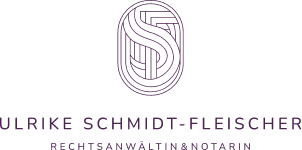Work-Related Visas
Germany is actively seeking skilled workers, particularly in technical, healthcare, and social sectors. If you hold a recognized degree or vocational qualification, you may qualify for a work visa.
Key Requirements:
- Recognized academic degree or vocational training
- Employment contract in a skilled profession
- Minimum salary threshold (higher for applicants over 45)
- Language skills (B1 level in regulated professions)
An Immigration Lawyer in Germany can ensure that your credentials are recognized, your contract meets legal standards, and your application avoids errors that could lead to rejection.
EU Blue Card (§ 18g Residence Act)
The EU Blue Card is a fast-track residence permit for highly qualified professionals, especially in IT and engineering.
Requirements:
- University degree or relevant professional experience
- Employment contract with a minimum gross salary (approx. €45,300 in 2024, lower for shortage occupations)
Advantages:
- Permanent residency after 21 months (with B1 German) or 33 months (A1 level)
- Family reunification without language requirements
- Free change of employer after 2 years
An Immigration Lawyer in Germany can guide you through the recognition of your qualifications, evaluate eligibility, and assist in employer transitions.
Student Visas (§ 16b Residence Act)
Germany is a top destination for international students. With admission to a recognized university, you can apply for a student visa and later transition to work-related permits.
A lawyer can help review your documents, assist with degree recognition, and support the transition between residence titles after graduation.
Job-Seeker Visa (§ 20 Residence Act)
After completing studies or vocational training in Germany, you may remain for up to six months to search for a job. Proof of financial stability is required.
An Immigration Lawyer in Germany advises on the most strategic residence title once employment is secured and can ensure all legal criteria are met.
Opportunity Card (§ 20a Residence Act)
The Opportunity Card is a points-based system allowing skilled non-EU nationals to live in Germany while seeking employment.
Points are awarded for:
- Education
- Language skills
- Age
- Work experience
- Ties to Germany
A lawyer can calculate your score, help you collect the required documents, and guide you toward long-term immigration solutions.
Business Immigration (§ 21 Residence Act)
Entrepreneurs and investors can obtain residency by starting a business or making a substantial investment in Germany.
Requirements:
- Viable business plan
- Secured funding
- Demonstrated economic benefit for Germany
- Relevant experience and qualifications
Legal forms:
- GmbH or UG (limited liability companies)
- Sole proprietorship
- Partnerships or stakes in existing businesses
An Immigration Lawyer in Germany assists in drafting a compliant business plan, structuring the investment legally, and communicating with immigration authorities and chambers of commerce.
Residency by Investment
Even without founding a company, significant investments may lead to residency, especially if they serve regional or national interests.
Examples:
- Company shares
- Real estate with economic relevance
- Startup investments
A lawyer ensures the investment meets legal standards, structures the process correctly, and manages official communication with immigration offices.
Researcher Visa (§ 18d Residence Act)
Researchers with a hosting agreement at a German institution are eligible for a specific residence permit designed to support international research collaboration.
Special Residence Permits
Certain professionals and situations have tailored immigration paths.
Eligible groups:
- Cross-border commuters
- Professional athletes, coaches, and artists
- Foreign medical professionals with licensing
An Immigration Lawyer in Germany assists with licensing issues, visa eligibility, and tax or social insurance matters.
Family Reunification (§ 27 ff. Residence Act)
Spouses and children of legal residents may be eligible for reunification under specific conditions.
Main requirements:
- Valid family relationship (marriage, parent-child)
- Resident family member holds a valid permit
- Adequate housing and income
- Basic language skills (A1), unless exempt
A lawyer helps prepare documents, addresses complex family situations, and appeals rejections or applies for exemptions.
Residency Through Marriage or Childbirth
Marrying a legal resident or having a child with German citizenship can open legal pathways to residence.
Permanent Residency (Settlement Permit)
The settlement permit allows permanent residency and work in Germany.
Standard conditions:
- 5 years of legal residence
- Independent livelihood
- B1 German language proficiency
- 60 months of pension contributions
- No serious criminal convictions
Special rule for Blue Card holders: Permanent residency is possible after 21 months (B1) or 33 months (A1).
An Immigration Lawyer in Germany can evaluate eligibility, supports the application, and advises on language and integration requirements.
Short-Term & Schengen Visas
Short-term visas permit stays of up to 90 days for purposes such as:
- Tourism
- Business meetings
- Medical treatment
- Family visits
Important notes:
- No employment allowed
- Proof of return and sufficient funds required
If your visa is denied or questioned, a lawyer can file a legal complaint or appeal (remonstration).
Humanitarian Residency & Hardship Cases
In exceptional situations, humanitarian or hardship-based residence permits may be granted.
Examples:
- Long-term integration
- Medical reasons
- Political persecution
- Humanitarian Residency (§22 Residence Act): Legal stay based on urgent personal circumstances.
Naturalization & Dual Citizenship
You may qualify for German citizenship after several years of legal residence.
Requirements:
- 8 years of residency (7 with integration course)
- B1 language skills and citizenship test
- Financial independence
- Clean criminal record
- Dual citizenship: Generally requires renouncing the original citizenship, but exceptions apply (e.g., EU citizens, children, political reasons).
An Immigration Lawyer in Germany handles complex cases and prepares you for interviews and documentation.
Relocation Services & Legal Support
Moving to Germany involves more than just obtaining a visa. Finding housing, registering locally, and enrolling in social systems are key steps.
A lawyer ensures that all contracts and procedures are legally sound and represents your interests in dealings with authorities.














